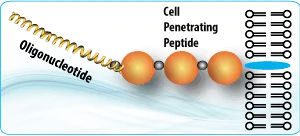
Histone methylation, a process that can signal either transcriptional repression or activation, is increasingly recognized for its interrelation with DNA methylation in mammals. For instance, the targeting of DNA methylation is intricately linked to H3K9 methylation, a key regulatory mechanism in gene expression. The p53 gene, known as the guardian of the genome and frequently mutated in human cancers, is regulated by various PTMs, including methylation.
Post-translational modifications (PTMs) of histone proteins, such as acetylation, methylation, and phosphorylation, are pivotal in regulating chromatin dynamics. Among these, the role of methylation, particularly at arginine or lysine residues, stands out for its complexity and significance. LifeTein, a leader in peptide synthesis, has contributed significantly to this field by synthesizing mono-, di-, or tri-methylated peptides. These peptides are instrumental in studying protein-protein interactions, especially in the context of histone methylation.
LifeTein’s contribution to this research is highlighted in a study focusing on the ASHH2 CW domain, which recognizes the methylation state at lysine 4 of histone 3 N-terminal tails. This domain is crucial in recruiting the ASHH2 methyltransferase enzyme to histones. The study utilized H3 histone tail mimicking peptides, specifically monomethylated (ARTK(me1)QTAR), dimethylated (ARTK(me2)QTAR), and trimethylated (ARTK(me3)QTAR) peptides, all synthesized by LifeTein with a remarkable 95% purity as confirmed by mass spectrometry.
The research documented the assignment of a shortened ASHH2 CW construct, CW42, which showed similar binding affinity and better expression yields than previous constructs. This advancement is significant in understanding how different methylation states affect protein-peptide interactions. The study also performed 1H–15N HSQC-monitored titrations to determine the saturation point of the protein-peptide complex. The findings revealed that the CW42 domain, when bound to the monomethylated histone tail mimic, showed similar perturbations in shifts as the di- and tri-methylated instances.
In summary, LifeTein’s synthetic methylated peptides have been instrumental in advancing our understanding of histone methylation. Their high-purity peptides have enabled researchers to delve deeper into chromatin dynamics and gene regulation complexities, paving the way for future discoveries in epigenetic therapies and cancer treatment.
Read the full article on SpringerLink](https://link.springer.com/article/10.1007/s12104-018-9811-x) for more detailed insights into this groundbreaking research.
